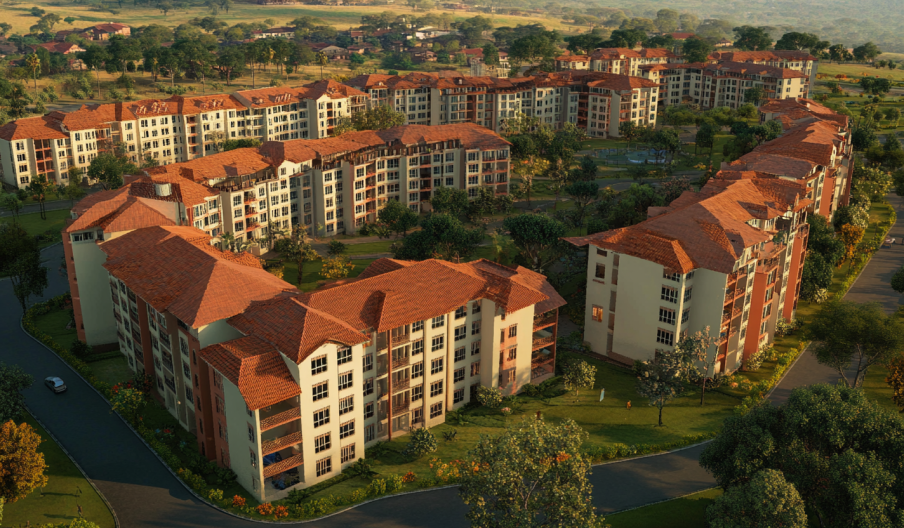- Kenya is growing and changing fast.
- In the past, many Kenyans lived in standalone houses surrounded by large plots of land.
- This rapid growth has caused a housing shortage, with a deficit of around 2 million units, increasing by about 200,000 units every year.
- As Nairobi and other cities continue to grow, blending modern apartment living with smart, sustainable development will be key to building a better future for all Kenyans.
Kenya is growing and changing fast. The way people live today is very different from how they lived in the past. Urbanisation, the movement of people from rural areas to cities, is transforming the housing market, pushing more people towards apartment living.
Table of Contents
The Shift from Land to Apartments
In the past, many Kenyans lived in standalone houses surrounded by large plots of land. These homes offered space for farming, gardening, and raising livestock. However, this lifestyle is slowly fading. Many families, especially those owning land on the outskirts of Nairobi, are selling their land.
Why? Businessmen and developers are eager to invest in real estate, particularly in building apartments. Areas like Ruaka, Kinoo, Syokimau, and Kitengela have become hot spots for apartment developments, turning once quiet farmlands into bustling residential areas.
Urban Growth Driving Housing Demand
Kenya’s urban population is growing rapidly. In 2009, about 32% of Kenyans lived in urban areas. By 2019, this had risen to nearly 40%, and it’s still climbing. Nairobi alone is expected to be home to over 6 million people by 2030. This rapid growth has caused a housing shortage, with a deficit of around 2 million units, increasing by about 200,000 units every year.
Apartments have become the best solution to this growing demand. They allow more people to live on smaller pieces of land, making them ideal for crowded cities.
Why Apartments Are Becoming Popular
Affordability
Buying land in Kenya has become very expensive, and building or renting standalone houses is even more costly. With the rising cost of living, many people are choosing more affordable housing options to save money. Apartments have become the most budget-friendly choice, as they are generally cheaper to rent or buy.
In Nairobi, the average monthly rent for a two-bedroom apartment is around KES 40,000, while standalone houses in the same areas are often much more expensive. This price difference makes apartments the go-to option for many families and young professionals looking for affordable urban living.
Land Scarcity
As Nairobi rapidly expands, land has become increasingly scarce and expensive. Large plots of land are now rare, and many landowners are subdividing their property into smaller plots, some as small as 40 by 80 feet, which are selling out quickly due to high demand.
With limited land available, developers are turning to high-rise apartment buildings as a smarter way to maximise space. Building upwards allows them to accommodate more people on smaller pieces of land, making apartments the most practical solution for Nairobi’s growing population and housing needs.
Investment Opportunities
Real estate remains one of Kenya’s fastest-growing and most profitable sectors. Nairobi’s rapidly growing population has created a high demand for housing, pushing developers to focus on apartment construction to meet this need.
The surge in apartment developments has proven to be a lucrative venture for investors. In 2022, apartment projects in Nairobi’s suburbs grew by 15%, fuelled by increasing demand for affordable and modern housing.
Areas like Ruaka, Kitengela and Syokimau are in great demand, attracting both local and international investors. Developers are not only making significant profits from apartment sales but also enjoying steady income from rentals. With Kenya’s urban population expected to continue rising, investing in apartments offers long-term financial growth and stability in the property market.
Government’s Role in Housing
To address Kenya’s growing housing shortage, the government launched the Affordable Housing Program as part of the Big Four Agenda. Recognising the limited availability of land and the rising demand for housing, the program primarily focuses on constructing affordable apartment units in urban areas. This shift toward apartment living reflects the practical need to house more people efficiently in Kenya’s rapidly growing cities.
Recent developments, such as the completion of affordable apartment blocks in areas like Pangani and Park Road, show positive steps forward. Still, scaling up these efforts is crucial to meet the housing demand and provide affordable, high-density living options for Kenyans.
Challenges of Apartment Living
While apartments solve many problems, they also come with challenges:
Infrastructure Strain: Nairobi’s roads, water, and power systems are under pressure due to high population density.
Cultural Shifts: Many Kenyans still prefer owning land and standalone homes. Moving into apartments can feel limiting for families used to larger spaces.
Environmental Concerns: Rapid construction can harm the environment if not managed properly.
Loss of Agricultural Land: Rising housing demand has pushed landowners to convert farmland into residential estates, prioritizing real estate profits over agriculture and threatening food security.
Conclusion
Kenya’s shift from standalone houses to apartments reflects the country’s rapid urban growth. Apartments offer solutions to housing shortages, but they also highlight the need for better city planning and infrastructure.
As Nairobi and other cities continue to grow, blending modern apartment living with smart, sustainable development will be key to building a better future for all Kenyans.



